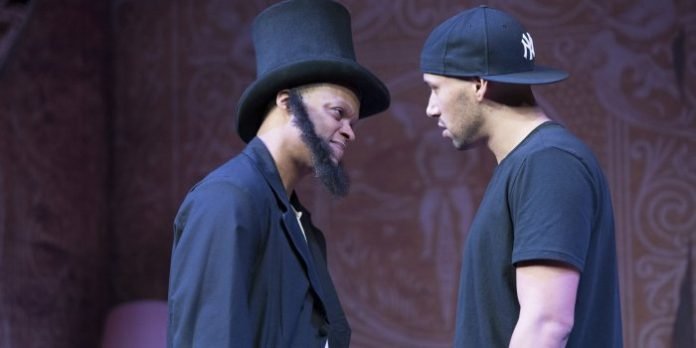


Although this Lincoln, like the one hes named for, wears the requisite frock coat and stovepipe hat, we see at once that hes a Black man in whiteface, and soon learn that he earns $314 a week for letting customers at an arcade pretend to shoot him. Her skittering silverfish of a play, a Pulitzer Prize winner in 2002, glints with meaning that refuses to stay put. In a seedy rooming house apartment, as one man rehearses his three-card monte spiel watch me close, watch me close now Abraham Lincoln arrives with Chinese takeout.īut watch Parks, too. Among the most thrilling and jarring gambits in modern theater, up there with the nattering woman half-buried in sand at the top of Samuel Becketts Happy Days, is the scene that opens Suzan-Lori Parks Topdog/Underdog with a bang. It’s that delusion that triggers a violent and tragic explosion by the end of the play.NEW YORK, NY. It’s played out via the play’s thematic motif of the three-card monte scam that Booth is desperate to learn. On the otherhand, Booth channels his hurt into delusion. Linc tries to sweep feelings under the rug and move on with his life. While they each share the same abandonment issues, they each deal with them in different ways. Linc is still haunted by his divorce from his first wife, Cookie, while Booth is holding onto hope that his ex-lover, Grace, wants him back. Their parents walked out on them as teenagers, a fact that reveals itself in more detail in the second act. What Hawkins and Abdul-Mateen II do best is manifest the long-term effects of abandonment. Scenes like Linc scaring Booth after coming home in white face as Abe Lincoln and Booth removing his coat to unload two full suits he boosted are displayed so realistically that you laugh because you can relate. The play’s funny moments work so well because they aren’t played off as heavy-handed gags.


 0 kommentar(er)
0 kommentar(er)
